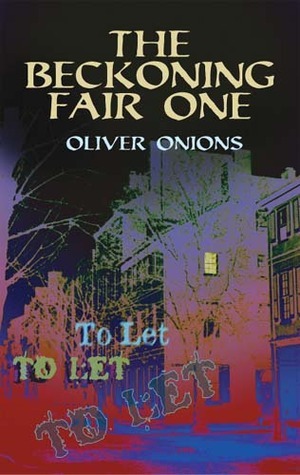 By OLIVER ONIONS (Dover; 1911/2004)
By OLIVER ONIONS (Dover; 1911/2004)
This is the most famous tale written by the late Oliver Onions, and widely considered one of the classic English language ghost stories. Turns out there’s a definite reason THE BECKONING FAIR ONE is so well regarded: it’s simply one of the finest stories of its kind, with a descriptive flair and psychological acuity you just don’t see in too many other scare stories then or now.
Oleron is a novelist who rents an old house in which to finish his latest novel. Tellingly, the lengthy opening description is focused entirely on the exterior of the house, with Oleron only coming into focus in the third paragraph. Clearly this abode, whose previous occupant didn’t survive his tenancy, will come to exert quite an influence on Oleron and the narrative overall.
The story, however, doesn’t follow traditional haunted house tropes. The focus is on Oleron’s deteriorating mental state, driven by a spectral presence he believes is extant in the house. He never actually sees the ghost in question (although he does hear some odd sounds), but is always on the hunt for it. In the meantime Oleron’s contact with the outside world steadily diminishes and his girlfriend Elsie is gradually phased out of his life.
Onions’ depiction of his protagonist’s breakdown is expertly delineated, complete with brief periods of lucidity in which Oleron recognizes what is happening to him but finds himself powerless to halt his mental decline. The relationship between Oleron and Elsie, who senses early on that she’s “not wanted” in the house, is also extremely well worked out, and with a great deal of real world complexity. For that matter, this tale contains one of the most realistic portrayals of the writing profession I’ve encountered in any story, from the manner in which Oleron finds ways to put off working on his novel to his dealings with publishers.
The once-shocking ending, in which Oleron meets an appropriately dark fate, is no longer very startling, and by modern standards even seems a bit clichéd. The final pages do, however, have a relentlessness and sense of inevitability that’s undeniably impacting.
